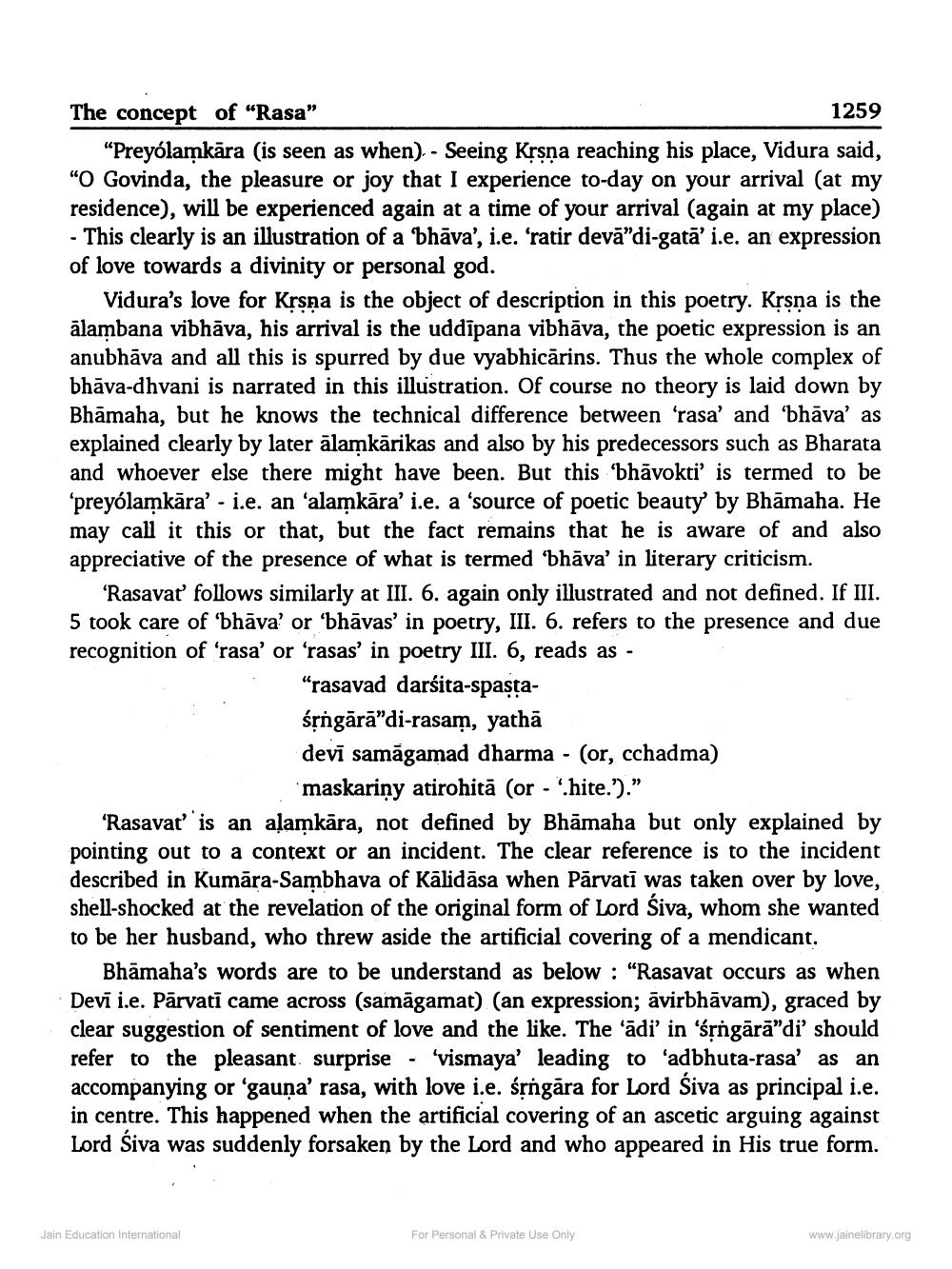________________
The concept of "Rasa"
1259
"Preyólamkara (is seen as when). Seeing Krsna reaching his place, Vidura said, "O Govinda, the pleasure or joy that I experience to-day on your arrival (at my residence), will be experienced again at a time of your arrival (again at my place) - This clearly is an illustration of a 'bhāva', i.e. 'ratir devā"di-gatā' i.e. an expression of love towards a divinity or personal god.
Vidura's love for Krsna is the object of description in this poetry. Kṛṣṇa is the ālambana vibhāva, his arrival is the uddīpana vibhāva, the poetic expression is an anubhava and all this is spurred by due vyabhicārins. Thus the whole complex of bhāva-dhvani is narrated in this illustration. Of course no theory is laid down by Bhamaha, but he knows the technical difference between 'rasa' and 'bhava' as explained clearly by later alamkarikas and also by his predecessors such as Bharata and whoever else there might have been. But this 'bhāvokti' is termed to be 'preyólamkara' - i.e. an 'alamkara' i.e. a 'source of poetic beauty' by Bhāmaha. He may call it this or that, but the fact remains that he is aware of and also appreciative of the presence of what is termed 'bhava' in literary criticism.
'Rasavat' follows similarly at III. 6. again only illustrated and not defined. If III. 5 took care of 'bhāva' or 'bhāvas' in poetry, III. 6. refers to the presence and due recognition of 'rasa' or 'rasas' in poetry III. 6, reads as -
"rasavad darsita-spastaśṛngārā"di-rasam, yathā
devi samāgamad dharma - (or, cchadma) maskariny atirohita (or .hite.")."
-
'Rasavat' is an alamkara, not defined by Bhamaha but only explained by pointing out to a context or an incident. The clear reference is to the incident described in Kumāra-Sambhava of Kālidāsa when Parvati was taken over by love, shell-shocked at the revelation of the original form of Lord Siva, whom she wanted to be her husband, who threw aside the artificial covering of a mendicant.
Bhamaha's words are to be understand as below: "Rasavat occurs as when Devi i.e. Pārvati came across (samāgamat) (an expression; āvirbhāvam), graced by clear suggestion of sentiment of love and the like. The 'adi' in 'śṛngārā"di' should refer to the pleasant surprise 'vismaya' leading to 'adbhuta-rasa' as an accompanying or 'gauņa' rasa, with love i.e. śṛngāra for Lord Siva as principal i.e. in centre. This happened when the artificial covering of an ascetic arguing against Lord Siva was suddenly forsaken by the Lord and who appeared in His true form.
Jain Education International
For Personal & Private Use Only
www.jainelibrary.org




